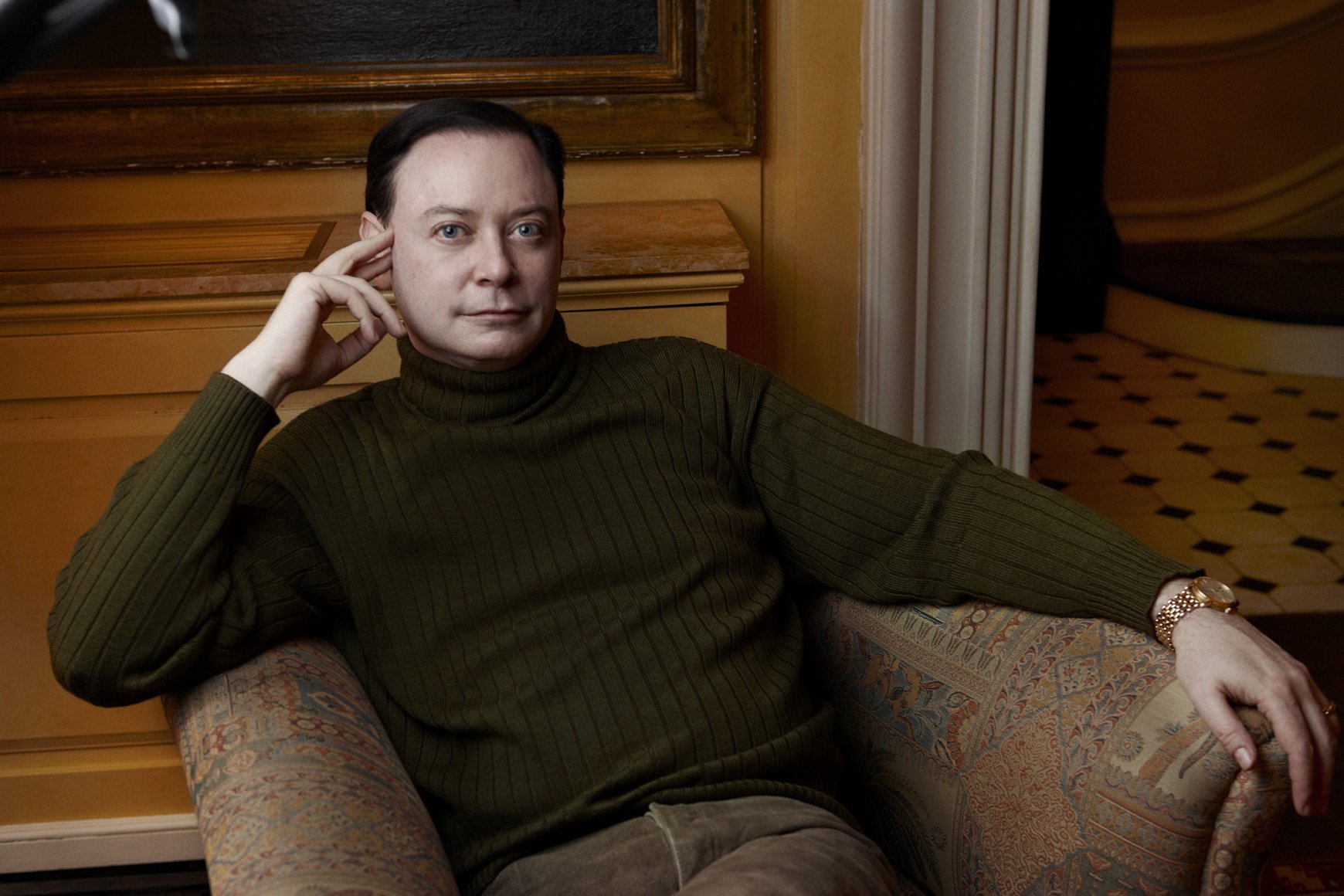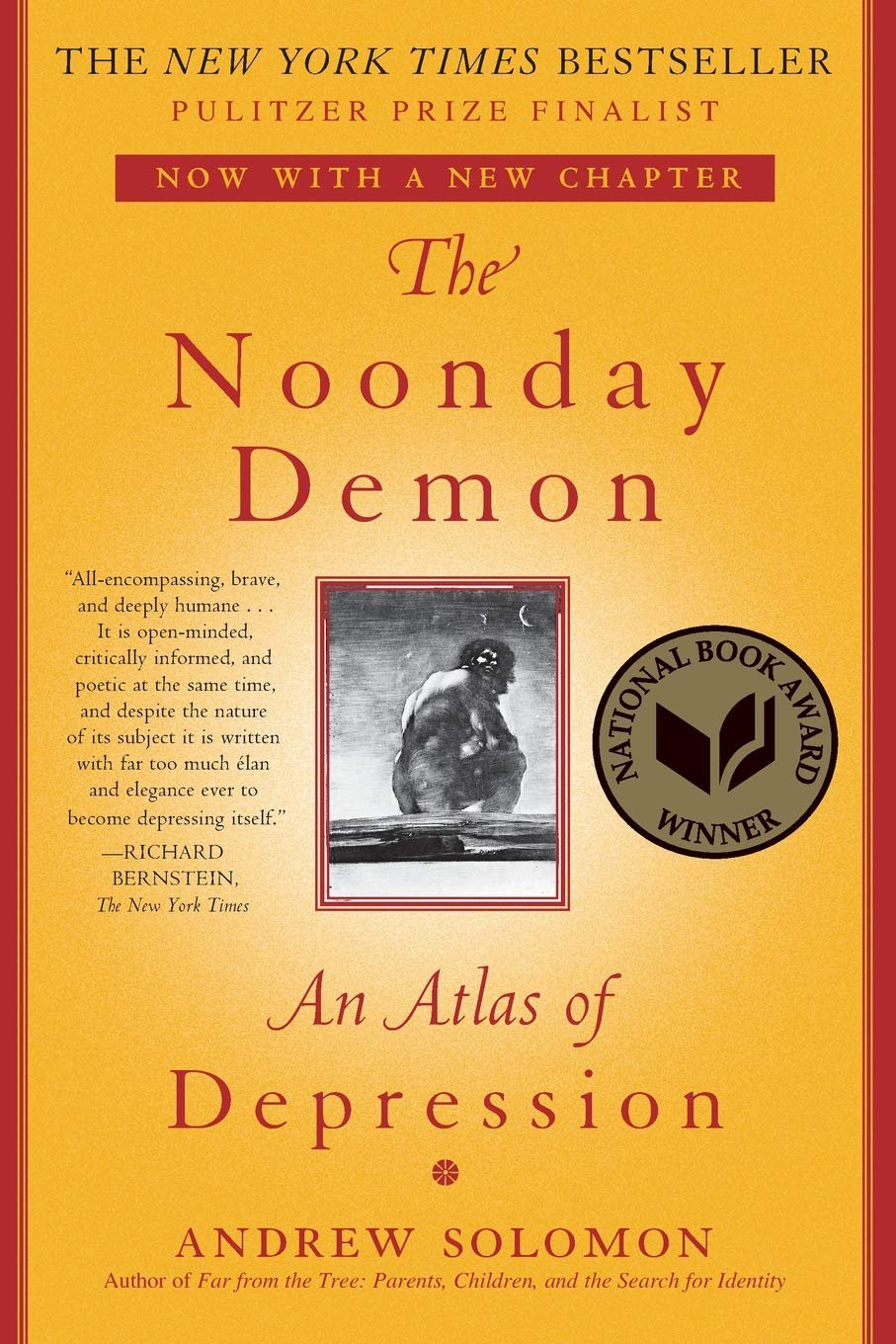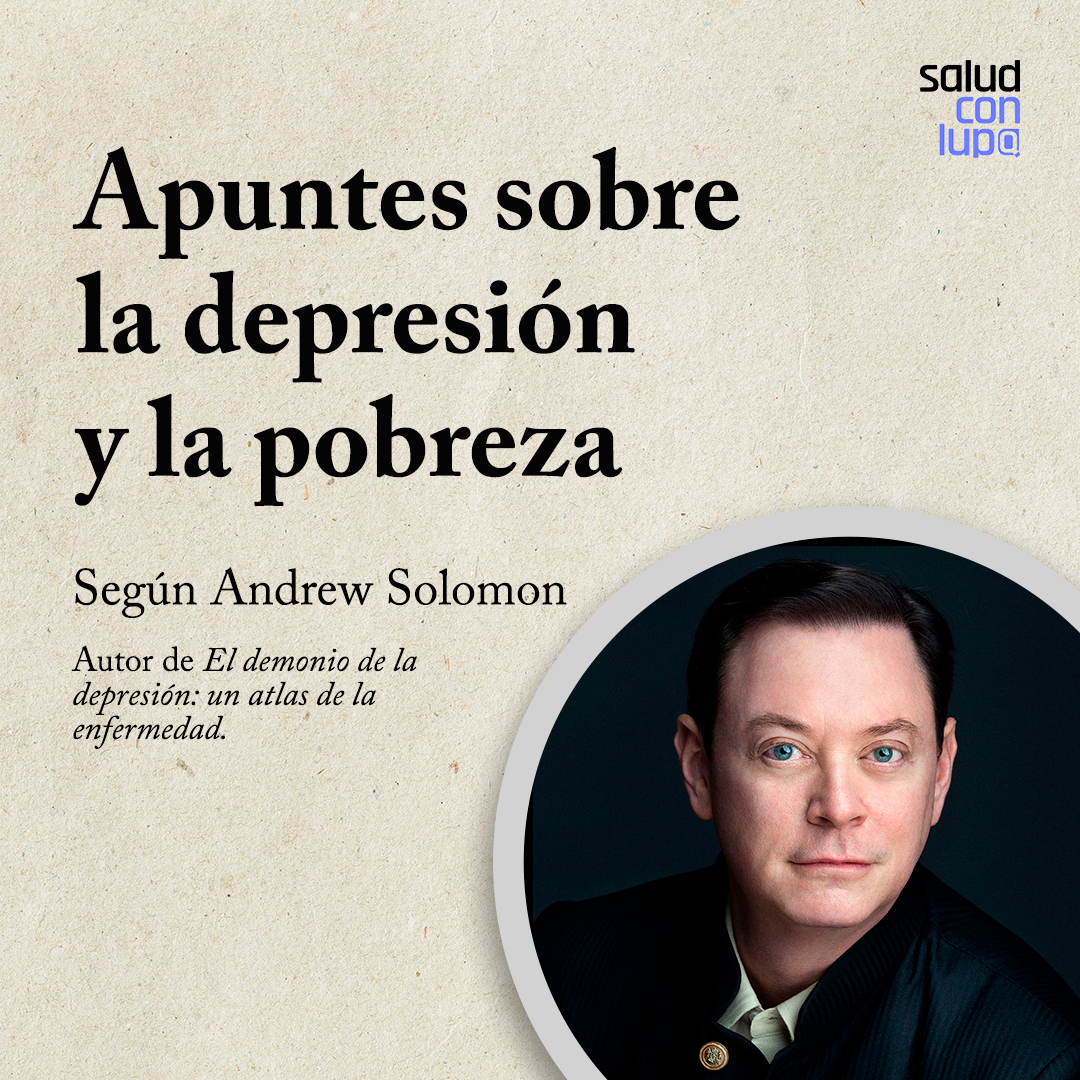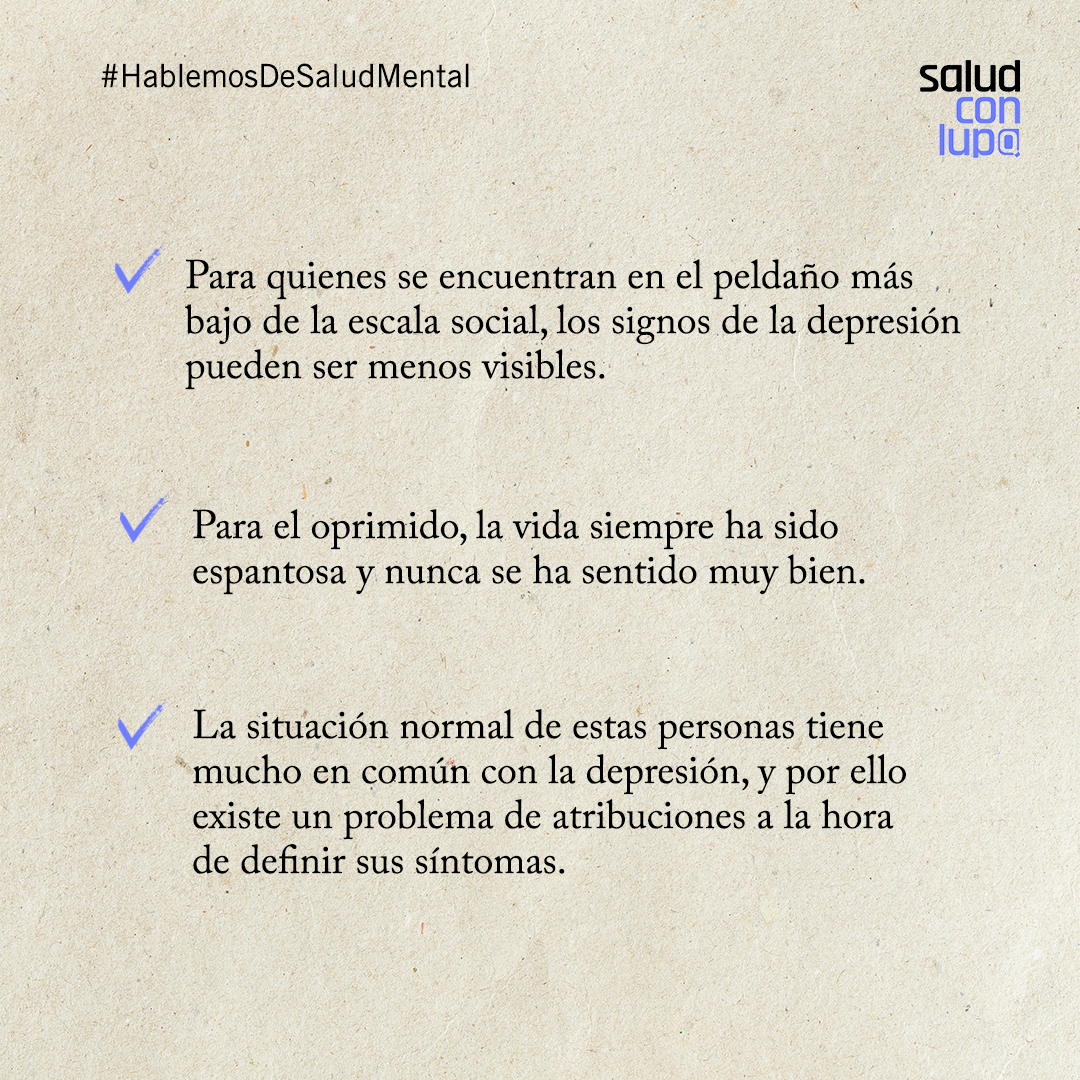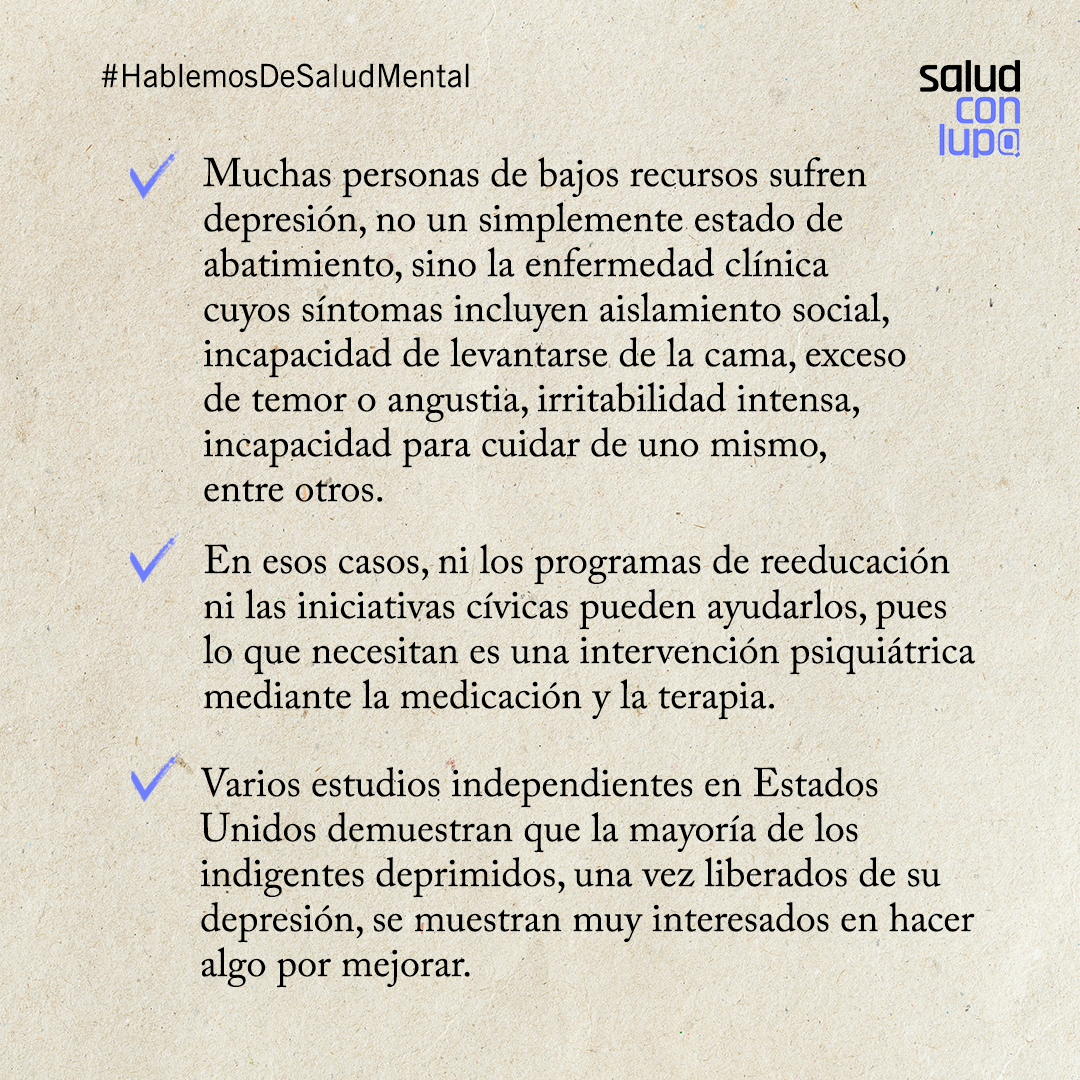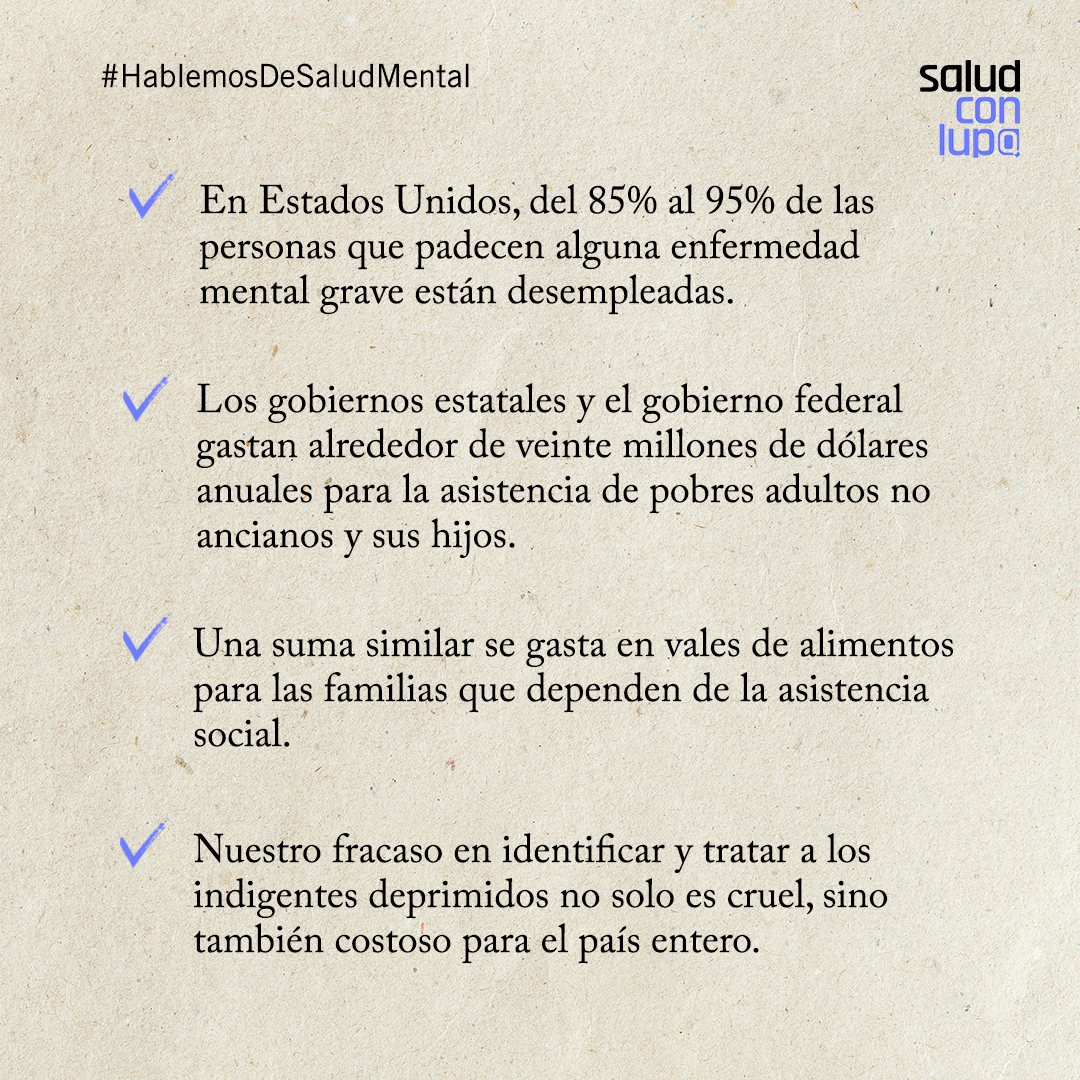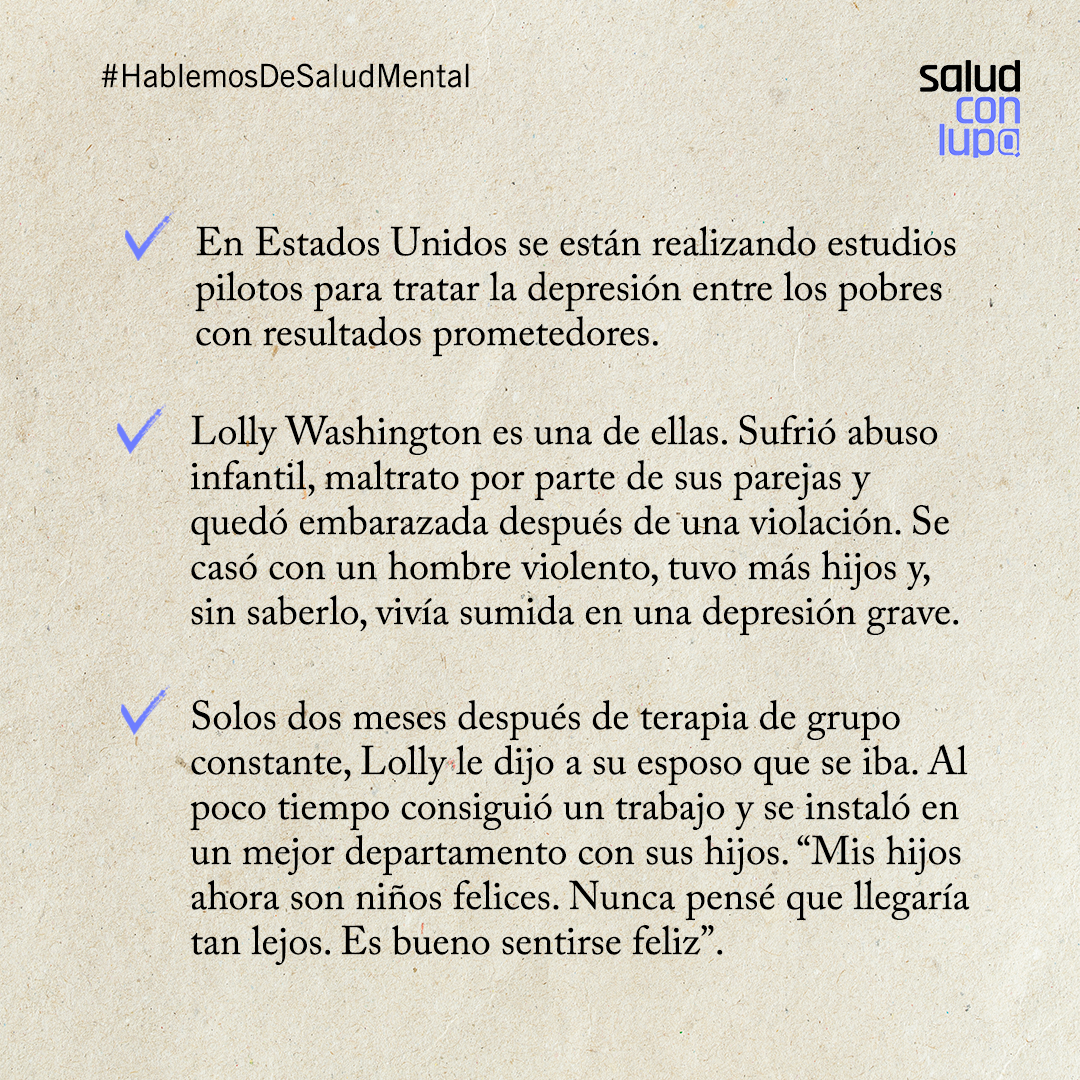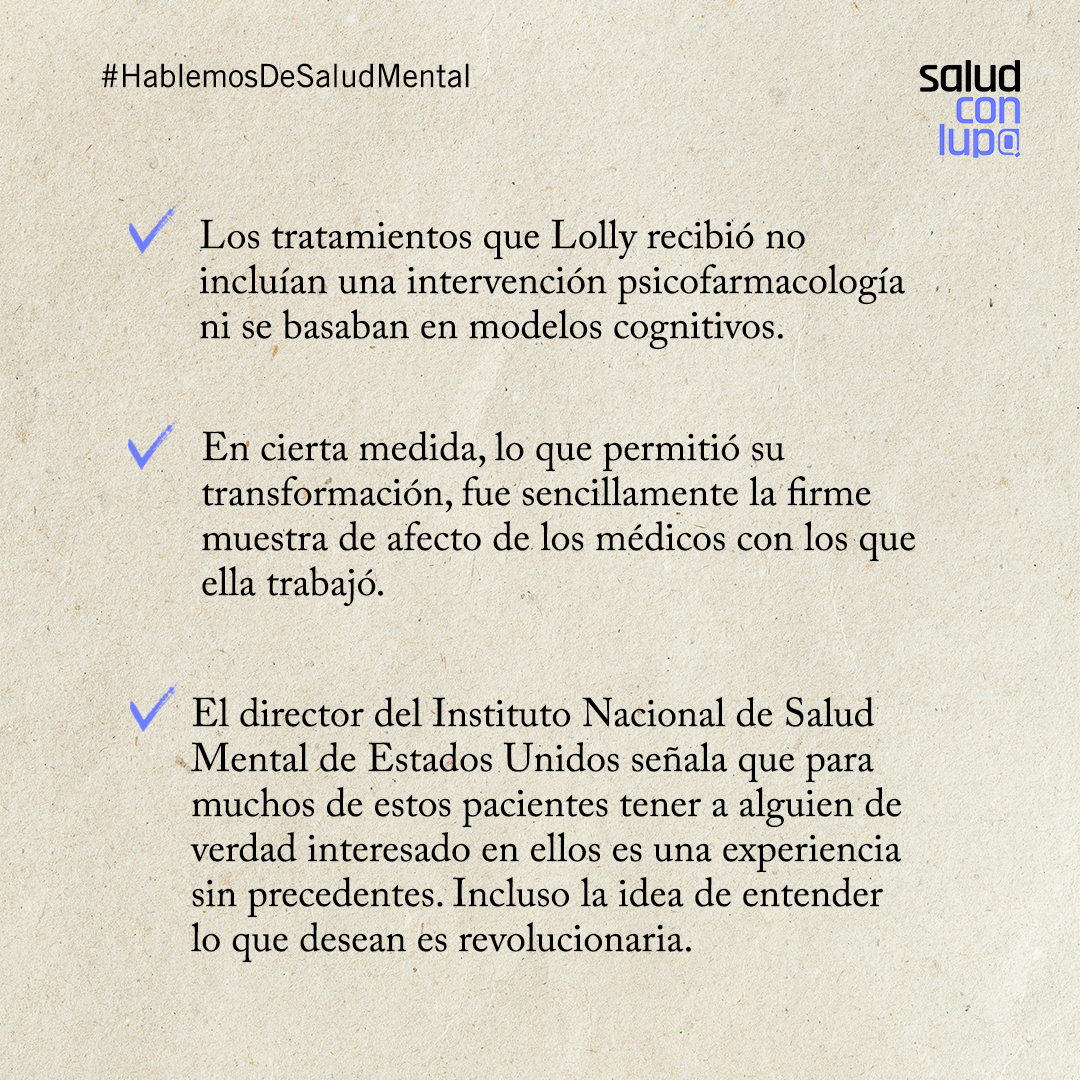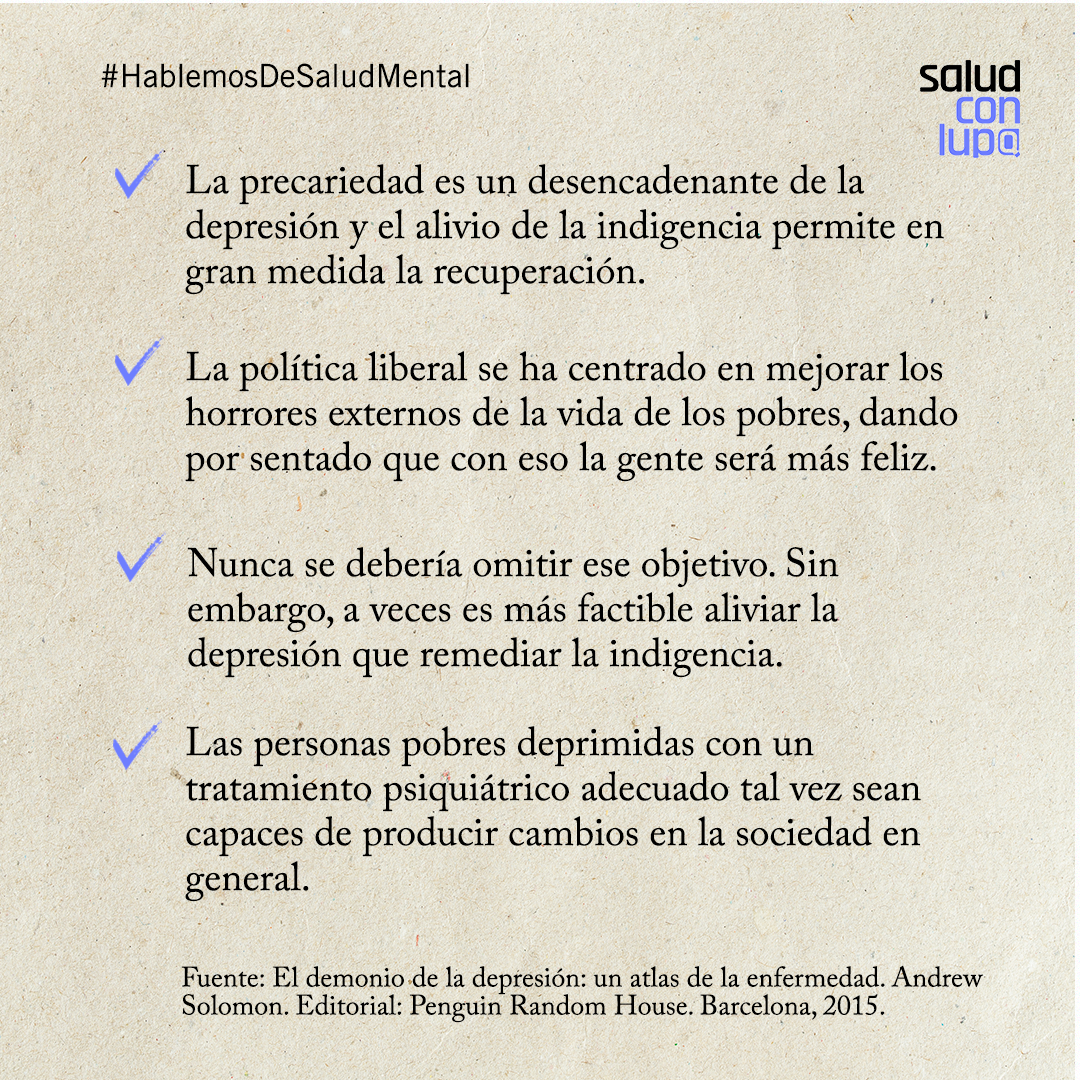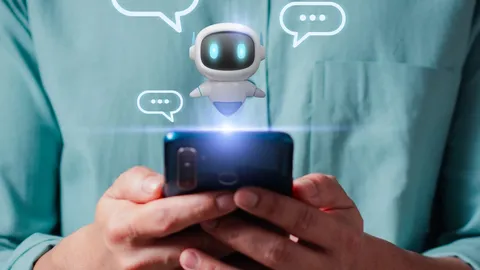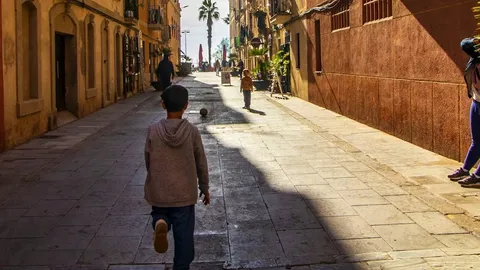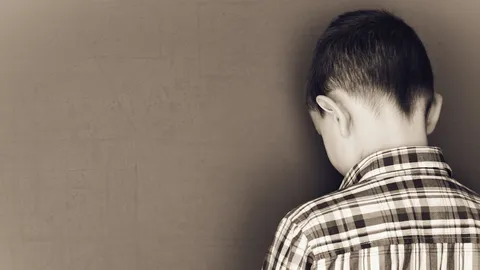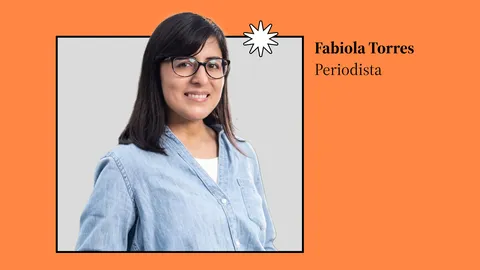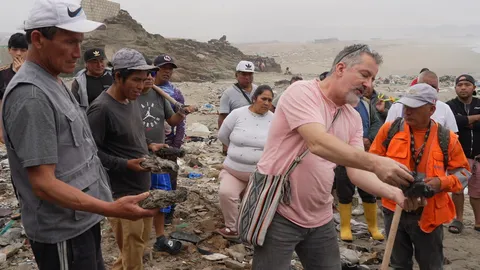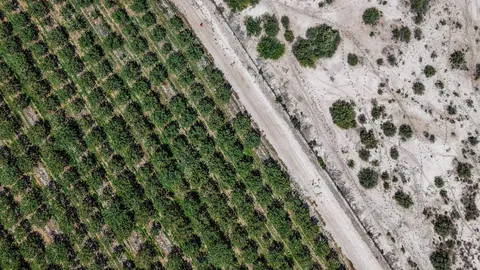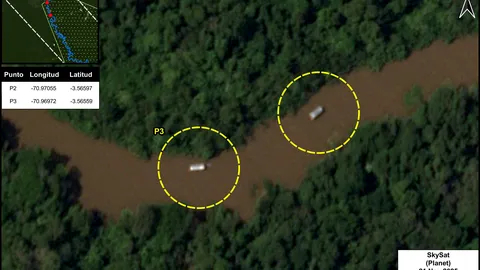On his birthday in 1994, Andrew Solomon woke up unable to move from bed. His body was rigid, his muscles no longer responded to him and he did not even remember how to speak. His tongue was moving but his mouth made no sound. He thought that maybe he had suffered some kind of paralysis. The phone rang four hours later and he managed to answer. It was his father. "What's the problem?" He asked him several times, but Solomon didn't know how to answer. He only managed to say: “Something is wrong. We need to find help ”.
Although he was at a relatively stable time in his life (he had just published his first novel, worked for The New Yorker, and had bought a new house), Solomon fell into a severe depression without quite understanding why. "Being depressed when you have experienced trauma or life is in real chaos is one thing, but being depressed when conflicts have been overcome and life is not a disaster, it plunges us into frightful confusion and loss of emotional stability", he wrote years later in The Noonday Demon the autobiographical book in which he investigates depressive disorders. As he struggled with his own ailments, Solomon decided to interview hundreds of depressed people around the world. Not only to better understand what was happening to him, but to also find a language that could portray the disease with some precision.
He soon discovered that the scientific vocabulary was not enough to convey the experience of pain and that is why many of the interviewees resorted to metaphors to explain their symptoms. His book is full of these kinds of descriptions, even from the first line, a six-word sentence that condenses the two main axes of his essay: "Depression is a crack in love." Later, to describe that morning when he could not move, Solomon wrote: “Depression is like feeling that the clothes we are wearing have turned into wood, it is like experiencing that stiffness in the elbows and knees as they get heavier little by little, sinking us into an immobility that isolates and atrophies us ”. From the time he started writing, it was clear to him that one of the best ways to dispel the stigma of depression was by recounting his own experience. Speaking openly about his case has made hundreds of people come to tell him their stories, leaving aside that secret shame that sometimes governs us when we feel desolate.
Through metaphors, testimonies and data, Solomon found the words that he could not find that day with his father to describe what he felt. His book is proof that speaking about mental health is more than accumulating figures, offering advice or listing diagnoses: it is forming an empathic dialogue to seek to understand ourselves a little more. Although the path of depression is still inhospitable and tangled, Solomon's book is like a compass that helps us navigate it without uncertainty and fear. A compass that we can return to whenever the road darkens.
Stefanie Pareja (SP): You’re a person that is very conscious of your mental health and has been taking care of it for years. When the pandemic started, did you feel a little more prepared to face it? Or have you encountered emotional discomforts that you did not expect?
Andrew Solomon (AS): Somehow I did feel like I was more prepared for the pandemic than many people I know. There are those who have developed depressive episodes that they have never had before. I have already experienced that, yes, at times I have felt as if I was giving maps to tourists at the gates of hell (laughs). At first I felt that there was this whole set of new emotions that people were experiencing and that were already quite familiar to me. But on the other hand, as someone who has had severe depression, I was particularly terrified. I was thinking "ok, will I manage to control this or am I going to break into a thousand pieces?" Then I knew that I had to be very vigilant. I am very glad to say that although it has not been an easy time, I have not experienced clinical depression, so that fear turned out to be unfounded. But many people I know have gone into clinical depression. I just found out yesterday that someone I haven't seen for a long time has committed suicide. I think there is a lot of suffering and that some people are not well equipped to deal with it or do not recognize that there is a solution or the treatments that are available.
Juan Francisco Ugarte (JFU): We have been in a pandemic for a year and in this whole time we have gone through different feelings. What symptoms of emotional disturbances have you recognized in the first months and which do you perceive now?
AS: At first there was a sense of adventure attached to all of this. For a while everything was impressive, we did not know what was going to happen, if we were all going to die, there was a lot of fear and confusion but at the same time we felt that we were embarking on something new. That's not to say that we were excited, but at least we were interested. In that period I would say that people were divided into those who were extremely resilient, had never been depressed before, and didn´t get depressed for the pandemic. Then we found those who were already depressed before the pandemic and now they escalated to something we call "double depression." There were also people who felt worried but that by eating well, making sure to sleep regularly and maintaining contact with others they managed to regulate themselves. That was at the beginning.
I think the tension has now expanded and the two hardest things we face are being away from the people we want to talk to and being locked in with the people we have to talk to. In this pandemic, some experienced both and as soon as they were able to get out and have contact again, divorce lawyers’ phones were ringing off the hook because people who accumulated tension for so long started to go completely crazy. We have felt incredibly isolated from the rest of humanity and it turns out that most of us are social creatures and we need friends, we need to have contact with others.
Now many focus on the physical distance, which is very necessary to prevent the spread of the virus, but they have forgotten to some extent that it is not only about protecting the physical health but also mental health. And well, anyone can be away from someone for a month but it is different to maintain distance for a year. I have friends who the only person they have seen in months is the supermarket cashier and they say they want to celebrate and play a harmonica every time they walk into the store because it feels good to have any kind of human contact (laughs). This is coming at a terrible cost and I think it will be very interesting, assuming we eventually achieve herd immunity and get out of this pandemic, to see the attitudes that it will leave us with.
I think of my grandmother, for example. She lived during the Great Depression in America and she had such a sense that you should not waste anything. She kept things that had no real use or value. I remember being at her house and opening a drawer full of pieces of string. I asked her what she was going to do with that drawer full of pieces of string and she said she didn't know but it couldn't be thrown away. I thought hmmm well, you can throw it away. I think we will have our equivalent of that drawer full of pieces of string. I don't know what it will be or what it will look like, but the pandemic is changing us in very profound ways.
SP: Yes, keeping distance from our loved ones is one of the things that is most difficult.
AS: It’s horrible. Not being able to touch those you love feels strange, artificial. I hate it and do not believe I am the only one.
SP: In one of your articles in The New York Times you mention that for some people physical contact is not a luxury, it is something they really need, you say that a hug not only makes us feel loved but also reduces the cortisol levels in our body. How do you think the way we show affection will change in the future? Will we feel fear after living with this contagious virus for so long?
AS: Well, i´ve had this argument with my brother. My dad is ninety-three years old and is definitely living his twilight years. I think that, for other people, if I don't hug them this year, I will hug them the next, but my father is fading and could die at any moment, not necessarily from covid. My brother, for his part, believes that the best thing we can do for dad is not touch him, keep our distance and not enter his house. I told him that, well, dad is in his last years and when he's ninety-four it's not going to be the same. If there is one thing that makes him happy at this stage of his life, it is being able to hug his children and his grandchildren.
So my brother's policy during the pandemic has been to never enter dad's house and only see him from a distance, but my policy has been that if my children and I are going to visit him and spend time with him, we will give him a hug if he wants a hug. My father has a cane and a walker but sometimes he says to me "Andrew, can I hold your arm?" And I'm not saying no to him just because it might be risky. That, to me, would be very cruel. I was talking to a friend who is a doctor about this and he told me that if physical company makes my father feel good, a man of that age, it also strengthens his immune system.
But it is true that now we all feel a little strange with physical contact. I was having lunch with a friend yesterday, we have both been very cautious this year. In fact, I already received the first dose of the vaccine and for various reasons we did not feel in danger. At the end of lunch he asked me "well, and are you hugging people?" and I thought mostly not but it was a great pleasure to see you and we hugged each other and it was a very warm moment. I must also say that during the summer I was at a small outdoor barbecue where most of the people were maintaining their social distance. But suddenly a friend of my father came and wanted to hug me and I thought "if I risk my life it will not be to hug this woman I hardly know" (laughs). So when are we going to feel comfortable touching others again? I think it will take time and that it will be a very slow process to feel safe again.
JFU: One of the times when we need a hug the most is when a loved one dies. With more than two million deaths from covid-19 around the world, many of us know someone who has been infected or who has been hospitalized due to the disease. This concept of death has been very present this year in our lives not only as a possibility but as a reality. How do you think the pain we are experiencing will change the way we grieve and our bond with death?
AS: That is a very profound and complicated question. I will do my best to answer. I think there are many components to the grief that people are experiencing in the pandemic. One of my best friends lost her father to covid. He was admitted to the hospital but the condition is so contagious that my friend was unable to visit him. And the father was someone who had slipped a little bit into dementia so he couldn't quite understand what was happening to him. My friend spoke with him every one or two hours on the cell phone but even so her father did not understand why she was not there, why he was alone and he went into a kind of coma. My friend used to sing to him the songs that he sang to her when she was a child, she wanted to give him some form of connection. Now she says that if someone had warned her that the last time she saw him would be the last time in her life she would have hugged him differently, she would have reacted differently. That situation of knowing that he was suffering and not being able to go to him has been terrible for her.
I was also recently told that getting covid is in part similar to getting AIDS. You know, if you get infected with AIDS you have to contact your sexual partners and tell them that they have possibly been exposed. Well, with covid you also have to notify who you have seen. There is shame around this disease because the rhetoric of “if only you had worn one mask”, “if you only had put on two masks”, “if you had only gone to the market on wednesday” is repeated a lot. Many are being blamed for getting sick, they are being blamed for dying. This mixture of guilt and suffering, this awareness that there could have been another result, is complicating people's grief.
And finally, I think that this disease makes it very difficult for us to separate mourning for someone else that has died and the fear of dying ourselves. If you have a friend who dies of cancer, you don't think "Oh God, will I be next?". Of course you may develop cancer one day but it is not the first thought that comes to mind. When someone dies from covid you feel sad for that person but at the same time you fear for your life. That combination of terror and suffering is very toxic and is affecting thousands of people.
SP: That the pandemic spreads so much, that there will be new waves of contagion and quarantines, has exacerbated the emotional discomforts in all of us. Many have started seeking professional help and have experienced their first therapy session on Zoom. How important do you think the empathy between patient and psychologist is for a treatment to work? Are we risking some of that relationship in virtual therapies?
AS: I will start by saying that my therapist, with whom I cared for twenty years, died at the beginning of the pandemic. So I had to start a new relationship with a therapist in the middle of the emergency. This question rings close to home. It is not the same. Of course, the twenty-year relationship with my doctor is not the same as with a therapist that I am getting to know through small images in Zoom. There is not the same degree of closeness or intimacy.
On the subject of empathy, there is a study that I think is fantastic that was done about twenty or thirty years ago in the United States. A group of patients was recruited and also a group of people who would care for them. Among them some were incredibly famous psychoanalysts, who had published all kinds of books. The others were high school english teachers posing as therapists. After three sessions with whoever they were assigned to, the patients were asked if they thought that person understood them and could help them. They then continued therapy for a year. In the end, those who had been cared for by a famous therapist but from the beginning said they did not feel a connection with them, did not progress much with the treatment. On the other hand, those who said that they felt comfortable with their therapists, had gotten a lot better even if they were just seeing the high school english teacher.
So the personal connection is key. People ask me all the time which therapy I think is better, if cognitive behavioral therapy, if psychodynamic therapy, but in the end what really matters is the connection that you create with the doctor. If you create what is called in the technical literature as "therapeutic alliance", you will get better and if you don't create it, you probably won't. It is almost impossible to create that link virtually. However, virtual therapy is better than no therapy. It will never be the same as sitting in front of your doctor but it can also help.
JFU: We read your article in The New Yorker about the death of your therapist. We were very moved. It shows that you had a very close bond. How has his death affected you?
AS: He was a friend and, in many ways, he was also like another father. He was a very important figure in my life for a long time. When I began to see him, I was desperate, in acute depression, almost suicidal. My life was in chaos. Now I have problems like any other but I found my husband, we have our children, my career took shape. And a lot of that I owe to Dr. Friedman. He transformed me and I believe that no one will ever help me or change me as much as he did. The road that I still have to travel towards mental health is no longer as extensive as the one in front of me when I met him. I talked to him about everything. I feel like there are whole parts of my life that have been left in his mind, nobody else knows. Fears and desires that I have not expressed to anyone else. There is a saying that I like very much: “when an old person dies it is as if a library burned down”. I feel that with the death of Dr. Friedman, with the disappearance of his wisdom, a part of my story was burned, vanished. I won't have that again with anyone.
I looked for a new therapist because I am prone to depression but I miss Dr. Friedman all the time. Since his death, I have been in contact with his wife and his children, whom I did not know. Sharing my grief with them has been a great help. If times were normal, we would have had a funeral, met other patients, and exchanged anecdotes about how Dr. Friedman helped us. I can tell my husband that I am sad and he will comfort me but he was never in a room with Dr. Friedman, he does not know him as I do. It is a very lonely pain.
I think what I mean is that things happen to me everyday and I think “I will tell this to Dr. Friedman”.. Then I realize that no, that I can no longer share that with him. Losing Dr. Friedman has been very hard. It's a big adjustment. Especially in a time as rare as this. He was particularly good at rare times (laughs). I am sure he would have said very interesting things about the pandemic and now I will never know what they would be.
SP: You have been very lucky to find such a doctor. It takes many people a long time to get comfortable with a therapist. Perhaps that is one of the reasons why many refuse psychological therapy. There are even those who think that the drugs are what really work and that the therapy does not help much. Why do you think it is so difficult for us to understand that talking about our problems with someone else can be healing?
AS: Well, first of all I think that a division has been set up between medication and psychotherapy. It is believed to be a modern issue, but it is actually quite an ancient issue. Plato insisted that depression was a condition that had to be resolved with philosophical conversation. Hippocrates said that it was an organic dysfunction of the brain and that it should be treated with oral remedies. This division has existed for more than 2,500 years.
On the other hand, I feel that I have the good fortune to live in New York, have an education, and be able to get good treatment. I had the opportunity to change doctors if I felt it was necessary. It took me a long time to find Dr. Friedman. That gives you a sense of control that counteracts depression. Many people do not have that privilege, they cannot choose a doctor or a treatment. It's very exhausting to sit in front of a bunch of doctors and try to explain your inner life to them. In the United States, talk therapy is expensive and has become a luxury over time. That is really dumb because depressed people practically cannot function. In addition to their own suffering, they impact society’s economy. If they receive treatment, they are likely to recover and make positive changes in their lives and those around them. Even economically it is convenient to treat the depression of a population. And there is no question that a mixture of therapy and medication has already been shown to work the best. A friend that is a researcher in the field of mental health treatments once told me, "Medication releases the handbrake off your car but you still have to learn how to drive it." I think that's what people really need.
JFU: One of the chapters that we liked the most in your book is precisely the one that addresses the issue of poverty. In it you describe our inability and little interest in identifying depression among those who live in precariousness.
AS: Thank you for saying that you were interested in that chapter. Look, we are all part of a horrible and unfair system. Maybe I got the vaccine because I have good internet in my house, I was able to register early and click after click until I got the appointment. A poor person without the internet cannot do that and loses their opportunity. There is inequality in every sense and something that the system normally deprives poor people of is care for their mental health. Those who may be able to get it are those who can go to a health center and say "I'm depressed, I need help", but in order to do that, the person has to overcome stigma, anxiety and the fact that it is very difficult to recognize that you are depressed when your life is particularly difficult.
When people say that depression is this kind of fancy middle class fashion, a trend that has intensified in the last two decades, I think: no, depression does not belong to the middle class, depression happens because of the crossing of a genetic vulnerability with external circumstances that trigger it. And who lives in the most detonating circumstances? The poor, the unprivileged. Ignoring that reality for me is a social crime.
SP: In this chapter you mention some pilot studies that are being done in the United States to treat depressed people who live in poverty. Something very interesting is that many of them recovered without receiving medication. What made the difference in their lives was having a group of people genuinely interested in them and their well-being. One doctor from those studies said that teaching poor women to verbalize their emotions and desires was revolutionary.
AS: Not having the cognitive language to describe what you feel really limits a person. After writing my book, I worked for a time in a prison. I do not want to compare criminality with poverty, but people who are in prison also live in adverse situations. I remember that we did a theater exercise, I asked them to do a play about their lives. For that, I showed them a scene from a movie and asked the inmates to tell me what emotions the characters express. They said that people looked upset, they looked frustrated, they mentioned many words and about half an hour later one finally said "I think they are a little sad." And I told them: yes, they are very, very sad. They were all tough men and the word "sad" was not allowed in their vocabulary. I think that often happens when we deal with disadvantaged populations. They do not have the language to define their emotions, they confuse them with other feelings, they cannot explain them.
JFU: Since you published your book twenty years ago, there are more people taking medicine or going to therapy. Even so, the figures for depression and anxiety continue to rise. Why do you think this happens? What progress has there been in treating emotional disorders?
AS: In terms of treatments, the progress that has been made is minimal. At the beginning of the nineties, the drugs that we now use to treat our mental health were developed, but from then on we have only had variations of them, no one has had a big discovery. We still don't understand the chemistry of depression, nor its biology, we don't really understand why some pills work well for some and shock others. There have been small advances but nothing revealing. As for the rising numbers, I think they are because the world is on fire. Now we have the pandemic, but we already had global warming, governments that abuse our rights, in the United States we had an almost satanic president, there are extremists in many countries, we live in a very unstable world. I talk to my children and each one has their fears. When they were little they were scared by the possibility that there was a monster under their beds and I could assure them that there was none. Now when they ask me what would happen if a part of the planet becomes uninhabitable, if there is not enough to support the entire human race, then in that case I cannot tell them that there is no danger. All I'm telling them is that I hope they belong to the group of people who will try to address these problems.
We already had a terrifying world before the pandemic and now it is more so because we think what will happen if another virus appears and is more lethal, when will it happen. We have lost a sense of security and stability in our own home that cannot be recovered. The pandemic presented us with the constant danger in which we live in a dramatic way. Perhaps in the mid-fifties some people thought that in the future things would be better, people would live longer, the world was progressing. I currently don't think that. Perhaps my children will have to live in a ruined world, how will they face that. The world is scary.
JFU: In your book you mention that suicide should be considered a diagnosis in itself and not just a consequence of depression. Even though you wrote these ideas over twenty years ago, we still think of suicide as a product of depression. Why is it so difficult for us to understand suicide as an independent diagnosis?
AS: The first reason why suicide is so difficult for us to understand is because we are so afraid of it. We are afraid that our children may commit it, we are afraid to think that if we have depression it could escalate to the point where we want to take our own lives. It is a horrible situation that we do not even want to contemplate. Also, not long ago people have started to accept depression as a real diagnosis, asking them to now consider suicide that way too is to pressure them to make another leap in their mental structure. That is difficult to achieve.
Most people who commit suicide were depressed, that's true, and it's a good starting point for studying the problem. But there are those who do it without fitting into the clinical picture of depression. Accessing someone's inner life to find out if they are at risk of committing suicide or if they are out of danger is one of the most urgent missions in mental health. I am supposed to be an expert on this subject and I know people who have committed suicide and I never thought they would. It was totally unexpected and I didn't know what to do or say. Suicide needs its own field of research, its own clinical standards, its own findings. And then we all need to understand the social crisis it represents.
One of the most devastating experiences I had was when my college classmate, with whom I had a good friendship, committed suicide ten years ago. After what happened, his partner went to the psychoanalyst and asked him if he had seen any signs in my friend. The therapist said yes, he talked about it often but she didn't think he would do it. The girlfriend asked why she didn't call her and tell her what was going on. The therapist responded that he needed to respect the privacy of his patients. Privacy for me is overrated in some cases. When it is appropriate, ok, but if there is a danger that someone is going to end their life and you know that the person has people who love them, people who would be alert and would do everything possible to take care of them and you do not say anything, that is crazy. There are rules in psychology and psychiatry practice that I think that needs to be changed.
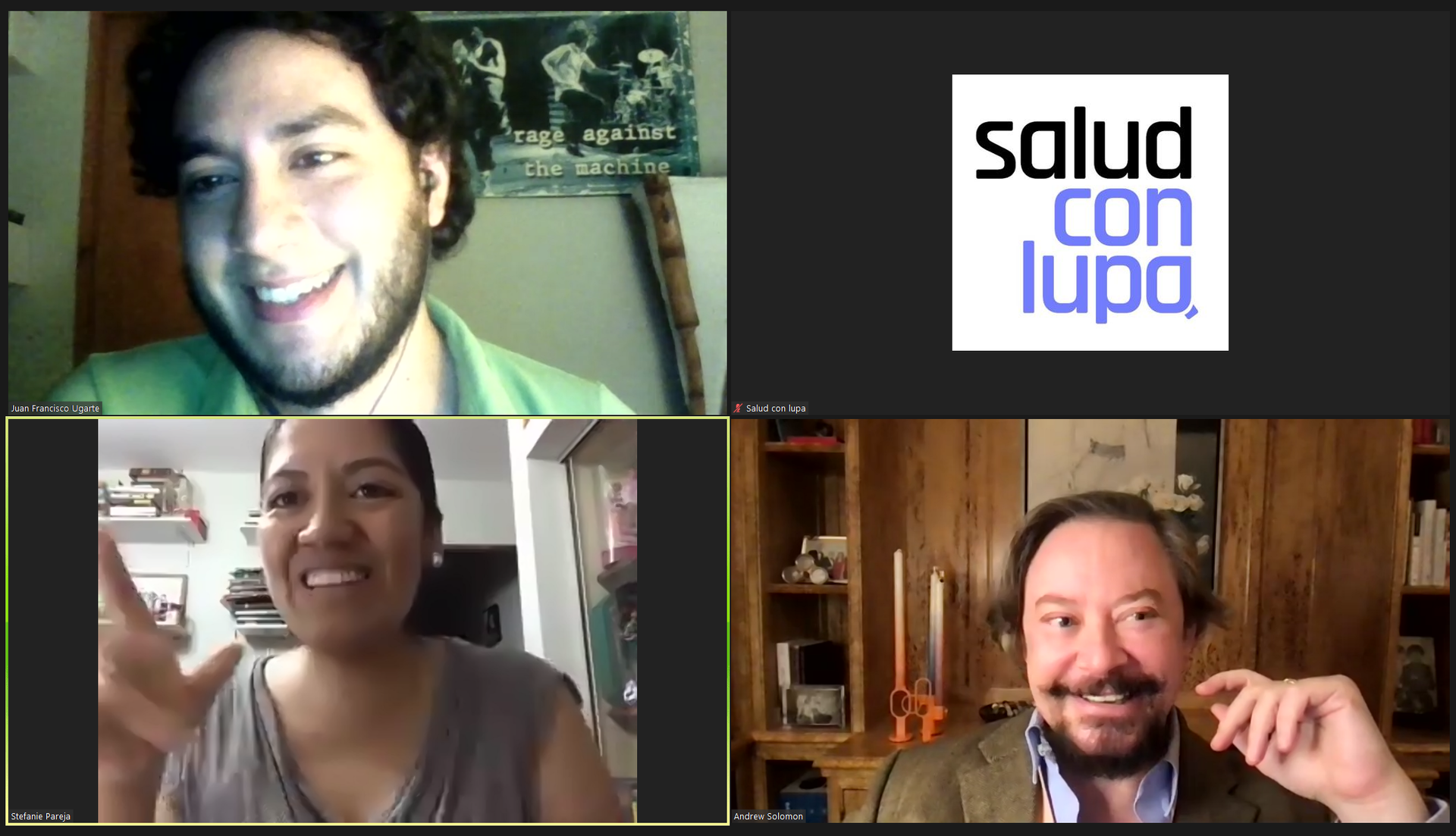
SP: After reading The Noonday Demon one does not come away with a feeling of fear. It is full of data and studies that allow us to better understand the disease, as complex as it is, but it does not take away your hope. On the contrary: It is also a book about support and love. How did you achieve that balance? How did you manage to explain so clearly what you learned in the darkest moments of your life?
AS: Thank you very much for those generous words. After dealing with my first experience with depression, I knew that there were many books on the subject. I knew that there were excellent books on the psychobiology of depression, very good books on how depression was perceived in the ancient world, many guides on therapeutic treatment, and several memoirs with the authors' personal experiences. But there was not one that condensed everything and I thought it was necessary for such a book to exist. So my mission was not to say things that no one has said or thought before but to assemble these various vocabularies with which depression had already been spoken and to try to get a coherent story, where all the pieces fit together and we can understand it better.
As for the narration of my personal experience, I am a very verbal person. My experience with depression has been horrible and many pages of the book are simply attempts to better understand what was happening to me. Writing them gave me a little sense of control. Then I took out the material that could only interest me and my doctor and kept the parts that could matter to others. The truth is that I felt extremely lucky, not because of the depression itself of course, but because of the experience of recovery, of being able to continue with my life. I think many people find it difficult to talk about their depression because there is a strong stigma around it, a kind of shame. While writing the book I knew that I would not lose my job if people found out that I was depressed, I could keep writing about it. I knew that my family was not going to reject me for having addressed my depression in public. So I thought that if the best way to get people to seek treatment was to reduce stigma and stigma would only be reduced when people are open to talking about their own experiences, well that's what I had to do.
Now some say to me "wow, you were so depressed and now you seem so good, what was your secret?". In part I think I had the privilege of being able to access really good treatment without which I don't know if I would be here, but I was also very lucky, at that point in my life, to have my father. My mother had died a few years before and I still didn't know my husband, so it was my dad who really took care of me. I think the people who have the best chance of recovering from depression are the ones who know they are loved, the ones who have a life they want to return to. Sometimes it is not very useful to say this but it is true. I wanted to explain that in the book as well because it would not only help depressed people but everyone who loves someone with depression. Depressed people tend to isolate themselves and I wanted to write a book that explains what it means to them to be supported in such a dark time.
